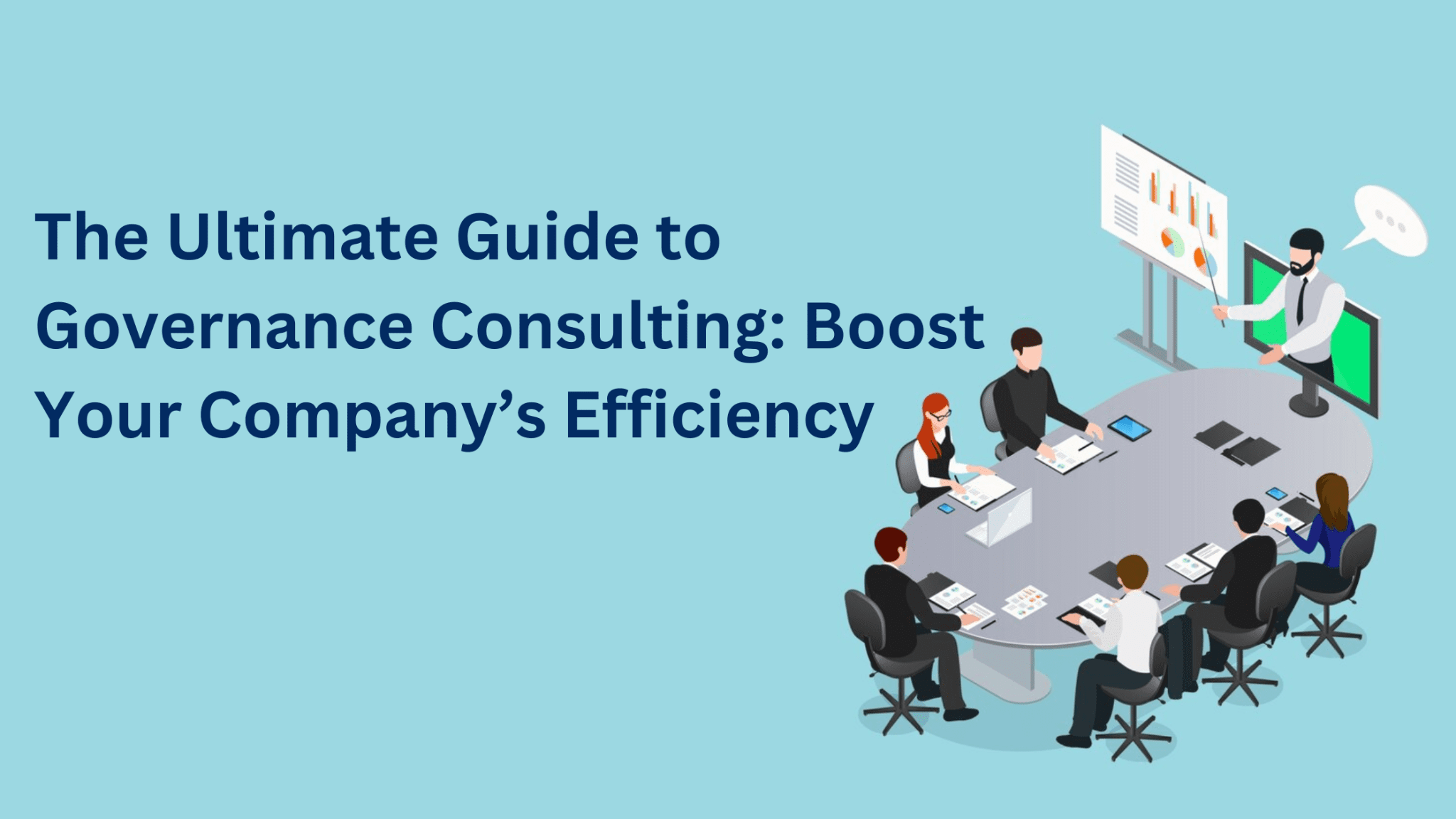
Introduction
In the present era, information is not just important but is regarded as one of the primary resources. Thus, data are not only critical to modern growth but are also necessary for the existence of most enterprises. It will, therefore, be important to understand how such information is handled so as to appreciate the parameters that define organizational success or failure fully. When businesses collect enormous amounts of data, the need to maintain a proper framework to handle that data becomes very important.
A good data governance consulting service guarantees that the data is precise, protected, and available for use in decision-making, to conform to stakeholder’s legal requirements, and for companies to remain competitive within the market. While Big Data analytics is highly beneficial and highly possible, it is not beyond the challenges of ineffective governance, with too much data becoming problematic even for large organizations as it creates potential inefficiencies and risks and opens up opportunities for competitors. Hence, successful data management is not just a necessity to accomplish business activities but a competitive advantage in today’s environment.
What is Governance Consulting?
Corporate governance consultancy includes the act of hiring an expert in an organization to provide advice about the best corporate governance to adopt. It encompasses better decision-making, legal requirements, risk controls, and further organizational structure developments. Therefore, management’s final objective is to achieve an organization that is effectively governed and, at the same time, sustainable. Cutting-edge governance consulting has emerged as a crucial necessity in the current business environment characterized by rising legal requirements and continuing market fluctuations. These considerations are best managed by governance consulting, which ensures that the organization complies with the legal natural business environment to make the correct strategic choices it needs to succeed.
Key Components of Governance Consulting Policy Development:
Governance consulting encompasses a vast category of advisory and consulting services that target the effectiveness of an organization’s governance system. This entails creating compliance structures, policies, and processes required to improve the organization’s efficiency.
Developing complete and accurate policies that individuals/employees and organizations should follow.
Risk Management: This includes identifying constructive and destructive risks and threats within organizations and how they might be avoided.
Compliance: This includes following commonly used measures to track the organization’s compliance with laws, regulations, and standards.
Board Effectiveness: A plan to improve the efficiency of the board of directors through training and development.
Stakeholder Engagement: Special emphasis has been placed on developing stable stakeholder relationships for governance initiatives.
Benefits of Governance Consulting
Enhancing Decision-Making Processes
Consulting in the governance sphere also facilitates the improvement of rather complicated decision-making structures through explicit rules and regulations. This helps to avoid any distortions in the organization’s decision-making process and ensures that the decisions are also strategic.
Enhancing use of compliance and risk
Business governance specialists help organizations implement sound compliance and risk management. They help identify areas of concern, develop strategies to avoid them and ensure that the organization operates within the laws that govern it.
Streamlining Organizational Structure
By incorporating the adjustment of the organizational structure in governance consulting, the systematic workflow can be refined to remove unnecessary layers. This, in turn, gives rise to an organization that is more responsive and quick to adapt to the market.
Initial Assessment and Analysis
According to governance consulting, the first process is diagnosing the current governance structure. This includes evaluating strategies, mechanisms, and structures to measure an organization’s effectiveness.
Crafting of Governance Models
After the initial assessment, a consultant who specializes in governance will create an individual governance plan for the organization to ameliorate its custom deficiencies. This plan entails developing and acquiring policies, procedures, and tools for governance.
Training and Development Programs
A significant component of managing change lies in the training and development that support the implementation of the new governance framework. The above programs enable the employees and board members to acquire essential information to apply governance standards in their organization.
Best Practices for Effective Governance Consulting
Stakeholder Engagement
It is important to involve stakeholders in governance consulting affairs and keep them on board. It entails frequent interaction and consistent participation in governance matters and decisions to support the initiatives.
Continuous Monitoring & Evaluation
Governance is not a one-off process, which is why it is effective depending on the cabinet. Organizations must undertake the process of constant assessment and review since governance practice can become inadequate or irrelevant over time. This involves regular reviews and updates to the governance framework.
Leveraging Technology and Tools
Utilizing technology and tools can enhance the effectiveness of governance practices. This includes software for compliance management, risk assessment, and performance tracking.
Case Studies: Successful Governance Consulting
Case Study 1: Using Small Business Turnaround
Turnaround activities that have contributed to the success of different organizations.A small business that had poor regulatory compliance and inadequate decision-making sought the services of a governance consultant. With the help of the specifically developed and enacted business model in relation to the particular company and training programs proliferation, the necessity for compliance was ensured. In contrast, the general decision-making framework and the overall efficiency of the business were enhanced.
Case Study 2: The corporate governance system needed a maintenance
A case of a large corporation in which governance has been a significant issue due to the institutions’ functioning, decentralization, and management of relationships with the various external and internal parties benefited from the professional governance consulting. The consultant also created an enhanced governance framework that helped address problem areas and facilitated improved relations with stakeholders, which uniformly contributed towards improved performance.
Case Study 3: Organization Development in Nonprofit Organizations
When the existing problems were lengthened by such issues as the ambiguity of roles and responsibilities in a non-profit organization, the governance consultant was consulted. Through the interventions made by the consultant, the organization’s work was made more efficient and understandable with specific respect to defining roles as well as compliance within the organization to achieve its mission.
Challenges in Governance Consulting
One reason governance consulting is sometimes tricky is that resistance to change is natural. Communication, the involvement of interested parties, and showing them the perspective of enhanced governance and risk practices are needed to overcome this.
Managing Change and Resistance
Some of the change management strategies are understanding its direction and sharing it with other organizational stakeholders, addressing their concerns, offering training opportunities that meet the new governance practices, and availing support from the corporate change management team.
Emerging Trends and Innovations
Governance consulting remains one of the fields that is constantly being transformed. Some trends that have so far emerged include adding ESG factors to company assessments, sharpening the focus on cyber risks, and using data analytics to promote governance changes.
The Impact of Artificial Intelligence and Automated Systems.
AI and AI automation are thus reshaping the governance consulting profession by enhancing ways of analyzing data and risks and, most importantly, monitoring compliance. All these technologies may be beneficial for advancing governance activities and raising organizational performance.
Criteria for Selection
When recommending a consultant to oversee the implementation of the governance structure, one must consider his or her credentials, track record on similar contracts, and the specific services he or she offers. Consultants also need to know your organization’s requirements, which means you have to find one that will satisfy all those requirements.
Conclusion
Therefore, constancy in governance consulting enables one to make recommendations for enhancing efficiency in the organization and increasing chances of success. Through comprehending the fundamental elements, adoption of successful things, and mitigation of problematic aspects, it is possible to understand that organizations can develop effective governance to foster better decisions, compliance, and risk management. In the future, as the business environment changes further, consulting in governance will always be needed in organizations aiming to be ahead of the competitors.








